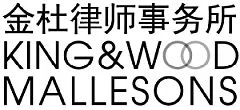- within Strategy, International Law and Employment and HR topic(s)
- in United Kingdom
- with readers working within the Healthcare, Media & Information and Retail & Leisure industries
On 26 October, a couple of Chinese airlines, including Air China, China Eastern Airlines, Shandong Airlines, Xiamen Airlines, Hainan Airlines, Capital Airlines and Shenzhen Airlines announced, separately, that they were going to raise passenger fuel surcharges for domestic flights.1
The following are some salient facts in the lead up to this passenger fuel surcharge "hike":
- On 25 October 2010, the National Development and Reform Commission (NDRC) issued a notice that the price of kerosene used in the aviation industry was to be increased.2
- The NDRC is the authority in charge of setting or adjusting the prices of vital commodities, including setting guidelines for prices and discount margins for entities in the civil aviation industry.
- The next day (i.e. 26 October 2010), Chinese airlines (such as those listed above) announced that they were raising passenger fuel surcharges for domestic flights.
Interestingly, the margin increase for these passenger fuel surcharges were identical: 3
- for flights of 800KMs and below, the surcharge was increased from RMB20 per passenger to RMB40 per passenger (i.e. by 100%); and
- for flights above 800KMs, the surcharge was increased from RMB40 per passenger to RMB70 per passenger (i.e. by approximately 75%).
These large increases in surcharges have caused some controversy. According to the press, the NDRC had only increased the price of RP-3 kerosene (used by airlines) by only 3%.4 Consumers have thus questioned the justification of the comparatively large price hikes.
In respect of the aviation industry, an entity known as the Civil Aviation Administration of China (CAAC) is responsible for recommending price adjustments to the NDRC. On 30 March 2010, both the NDRC and the CAAC published a notice to do with passenger fuel charges for domestic airlines. This notice specifies the formula in which each airline must use to calculate "maximum" fuel surcharge rates. The notice also states that each airline should use its own discretion to decide whether and when to collect fuel surcharges as well as the amount of these surcharges.
Thus far, as far as we are aware, no antitrust allegations have been made against the airlines in the press.
(1) See for instance the following press releases issued by the airlines:
http://cnbusinessnews.com/chinese-airlines-to-raise-fuel-surcharges/; http://www.airchina.com.cn/cn/tripmanager/service_notice/booking_notice/10/107145.shtml;http://www.ceair.com/mu/main/gydh/ywks/201010/t20101027_21336.html and http://www.xiamenair.com.cn/about_show.aspx?Id=817.
(2) See: http://www.ndrc.gov.cn/zcfb/zcfbtz/2010tz/t20101025_376815.htm
(3) See: http://www.china.com.cn/economic/txt/2010-10/27/content_21206853.htm
(4) Ibid.
The content of this article is intended to provide a general guide to the subject matter. Specialist advice should be sought about your specific circumstances.



